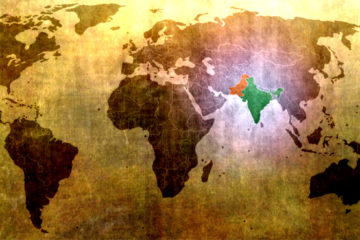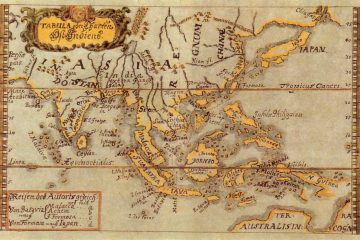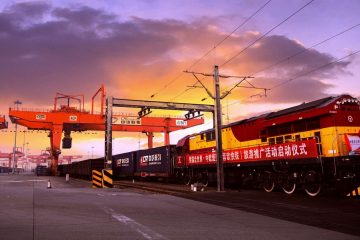Stronger Government Management and Policies are Necessary to Save Jakarta
On New Year’s Eve, Indonesia’s capital, Jakarta, was hit by the worst flooding since 2013. The disaster caused damages and insecurity across the metropolitan area, pushing thousands of families to try to temporarily relocate. Unfortunately, transportation systems were paralysed. The Transportation Ministry’s air transportation Director-General, Polana B. Pramesti, closed the Halim Perdanakusuma Airport because its runways were inundated by up to 80 centimeters of water. According to the National Disaster Mitigation Agency (BNPB), at least seven sub-districts in Jakarta were pounded by floods. Jakarta has long known to be vulnerable to ruinous floods. Empirical evidence shows 95 percent of North Jakarta will expectedly submerge by 2050. This is part of what motivated President Joko Widodo to announce on 26th August …
Hong Kong: Have Protester Demographics Changed Following Escalating Violence?
As protests in Hong Kong have become more violent, have the demographics of the protesters changed? Political scientists have argued that a shift toward more violent protest action can alienate moderate protesters. Moderates, in this definition, are those who may share common cause with radicals (or those who embrace violent tactics) but reject those tactics. Once alienated, such moderate protesters tend to withdraw their support from a movement and may refrain from participating in protest action in the future. Hong Kong’s protests seem to have defied this trend. My surveys of protest participants find that the demographic profile of protesters has remained relatively constant even as violence has escalated in the demonstrations. Certain types of protesters who might be expected …
The Political Dynamics of Myanmar Facing the International Court of Justice
On the 12 December, 2019 the International Court of Justice (ICJ) concluded its public hearings on the request for the indication of provisional measures submitted by the Republic of The Gambia in the case of the application of the Convention on the Prevention and Punishment of the Crime of Genocide (The Gambia v. Myanmar). The case is the first of three cases against Myanmar in a move to hold the country accountable for the atrocities committed against the Rohingya minority in Rakhine State since August 2017, which drove 730.000 into neighbouring Bangladesh. The International Criminal Court launched an investigation into the persecution of the Rohingya on 14 November while a separate case under the principle of universal jurisdiction was filed in Argentina. For the …

Prolonging Conflict: Global Powers’ Involvement in the India-Pakistan Rivalry
The India-Pakistan conflict is one of the most enduring rivalries of the post-World War era. The two nuclear states have fought four wars, and smaller-scale skirmishes are common occurrences. Since the nuclearization of the two countries in 1998, the nuclear stalemate has been one of the most important facet of this ongoing rivalry. Apart from Kashmir, over which three wars have been fought, constant cross-border terrorist attacks in India have severely limited and disrupted initiatives to defuse the situation. Recently, tensions have flared up because of the decision by the Indian government to abrogate Article 370 of the constitution which gave the state of Jammu and Kashmir special status within the Indian republic. This move has infuriated Pakistan, vowing to …

Arming without Aiming? India’s Quest for Material Power and International Influence
In terms of material military power, India does not lag far behind the traditional materially powerful states. The country ranks among the top in terms of the size of and investments in its army, air force, and navy. Furthermore, in 1998, India revealed to the world that it possessed nuclear weapons. Yet, while India has sufficient material power to be categorized as a powerful state, the country does not always think and act like a materially powerful state. For India, more material power has not been necessarily enough to ensure greater international influence. Thus far, India can be accused of ‘arming without aiming’ in its quest for greater international influence. India’s Material Powers India’s raw military power is impressive. The …

The Scramble for Southeast Asia: ASEAN-Great Power Relations in an Increasingly Contested Region
As the world’s economic and geopolitical centre of gravity shifts eastwards, a scramble for Southeast Asia is underway as the great powers seek to expand and defend their influence in this dynamic region. This renewed great power competition demands that members of ASEAN (Association of Southeast Asian Nations) revise their approaches and rethink their relations to one another and others. Southeast Asia is a crucial node in China’s Belt and Road Initiative (BRI) while the ‘Quad’ of Japan, India, Australia and the US have announced the “Free and Open Indo-Pacific (FOIP)” initiative to balance Beijing’s growing influence. New powers have also begun to make their presence felt in Southeast Asia: South Korean President Moon Jae-in has proclaimed a “New Southern …

Is China’s Belt and Road Initiative Really What Interpreters Make of It?
Without question, the much-debated, mammoth Belt and Road Initiative (BRI), is a brainchild of China’s President Xi Jinping. Without question, Xi Jinping has further centralised his powers and, in the process, China has turned more authoritarian. Yet, understanding this gigantic infrastructure investment initiative simply as a top-down project, directed by an almighty leadership in Beijing, is more than questionable. The BRI is open, plural and ever-changing, and, to a large degree what interpreters, Chinese or otherwise, public or private, make of it. Following the pragmatic attitude which has characterised China’s leadership since Deng Xiaoping’s reforms in the 1980s (‘crossing the river by feeling the stones’), Xi Jinping inaugurated the BRI when a great deal of Chinese overseas investments was already …

WILL HISTORY REPEAT ITSELF WITH PRESIDENT TRUMP’S TRADE WAR WITH CHINA?
The iconic statue of the first American postmaster general Benjamin Franklin greets visitors to the Old Post Office Pavilion in the heart of the US capital: Washington, DC. The edifice is now home to the luxurious and controversial Trump International Hotel on Pennsylvania Avenue at the mid-point between the US Capitol Building and the White House. The hotel webpage invites guests to “share tea” in the Benjamin Bar to discuss “social and economic affairs” as it was the “‘established custom’” in colonial America. It further states that “we agree with Franklin” and delight to “serve tea from China.” The page indicates that Franklin had stated “‘at least a million Americans drink tea twice a day,’” Yet, he was “unable to …









